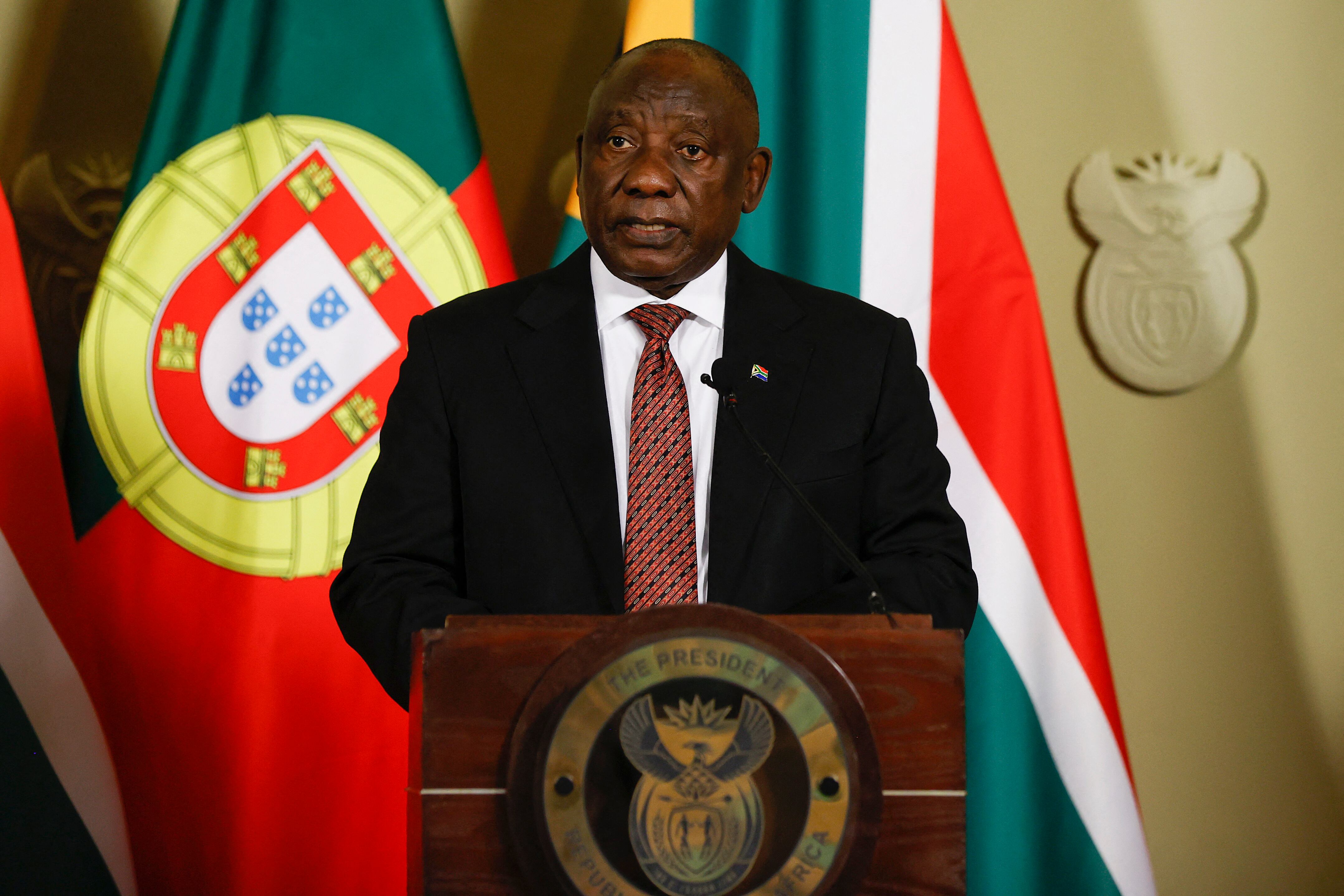
Cyril Ramaphosa, an anti-apartheid activist and wealthy businessman before becoming president of South Africa in 2018, was inaugurated this Wednesday for a second five-year term in which he will lead a coalition government unprecedented in thirty years of multiracial democracy in the country.
Ramaphosa topped the list with the most votes in the seventh general elections on May 29, but his party, the African National Congress (ANC), achieved its worst result, winning 159 of the 400 seats in the National Assembly (Lower House of Parliament). .
With 40.18% of the votes, the ANC lost its, until now, untouchable absolute majority and had to agree with other formations for the first time since the end of the segregationist ‘apartheid’ regime and the establishment of democracy in 1994.
Before Ramaphosa was elected president by Parliament last Friday, the second most voted party, the Democratic Alliance (AD, liberal center-right), which obtained 21.80% of the vote (87 seats), announced a historic agreement with the CNA to train “a government of national unity”.
“The formation of a Government of national unity is a moment of profound importance. It’s the beginning of a new era“said the president this Wednesday during his inauguration speech at the Union Buildings, headquarters of the Government in Pretoria.
After playing an important role in the negotiations that dismantled apartheid (1948-1994) and later prospering in the private sector, Ramaphosa came to the Presidency in 2018 with a promise of change to end widespread corruption under the mandate of his predecessor, Jacob Zuma (2009-2018).
But, during his government, frustration grew due to the persistence of problems such as high unemployment (32.9%), crime, the energy crisis with constant blackouts and the extreme inequality that still weighs on the black population.
Ramaphosa himself, who always highlights the improvements achieved since the advent of democracy, has not been without controversy: an alleged case of corruption made his resignation seem imminent in December 2022.
Skilled negotiator
Born on November 17, 1952 in Johannesburg, a few years before his family was forced to move to the former black ghetto of Soweto, Ramaphosa studied law.
His student years led him to political activism, where he aligned himself with black consciousness movements and ended up being imprisoned twice in the 70s and accused under the segregationist government’s terrorism laws.
Later, he leaned towards trade unionism and was a co-founder of the National Union of Black Miners (NUM), the largest in South Africa.
From his general secretary position, he led the miners in 1987 in one of the longest strikes in the country’s history. His fame as a strategist and negotiator dates back to that time, which would later make him one of the most promising young people in the ANC.
His election in 1991 as general secretary of the party – in his first meeting after thirty years of banning – meant his departure from the NUM to establish himself as a key figure in the negotiations to end apartheid.
Ramaphosa was supposed to be the first black vice president of democratic South Africa, under the presidency of Nelson Mandela (1994-1999), but he was entrusted with the task of presiding over the Constituent Assembly that drafted the new Magna Carta, approved in 1996.
Then, he began a new chapter away from politics, into the business world, where he became a leading figure in black capitalism and one of the richest men in the country.
The president has also seen his career stained by conflictive moments, such as his involvement in 2012 in the Marikana Massacre, considered the worst episode of violence in democracy.
Ramaphosa was a director of the British company Lonmin, manager of the Marikana platinum mine (about 100 kilometers from Johannesburg), when a strike broke out in which the Police opened fire on protesters and killed 34 people.
Internal communications showed Ramaphosa as one of those in favor of cracking down just before the massacre, although an investigation cleared him of responsibility.
Return to the political front line
In 2012 he returned to the political front line when he was elected vice president of the ANC, before becoming Zuma’s number two after the 2014 elections.
His escalation did not stop there and Ramaphosa proclaimed himself leader of the ANC at the end of 2017, replacing Jacob Zuma, forced by the party to resign as president due to his corruption scandals.
On February 15, 2018, he assumed the head of state and predicted a “new dawn” for South Africa.
After the ANC lost its absolute majority, Ramaphosa, the fifth head of state to govern South Africa, will now have to once again resort to his negotiating skills to lead a power-sharing Executive that lasts the next five years.
Source: Gestion
Ricardo is a renowned author and journalist, known for his exceptional writing on top-news stories. He currently works as a writer at the 247 News Agency, where he is known for his ability to deliver breaking news and insightful analysis on the most pressing issues of the day.











